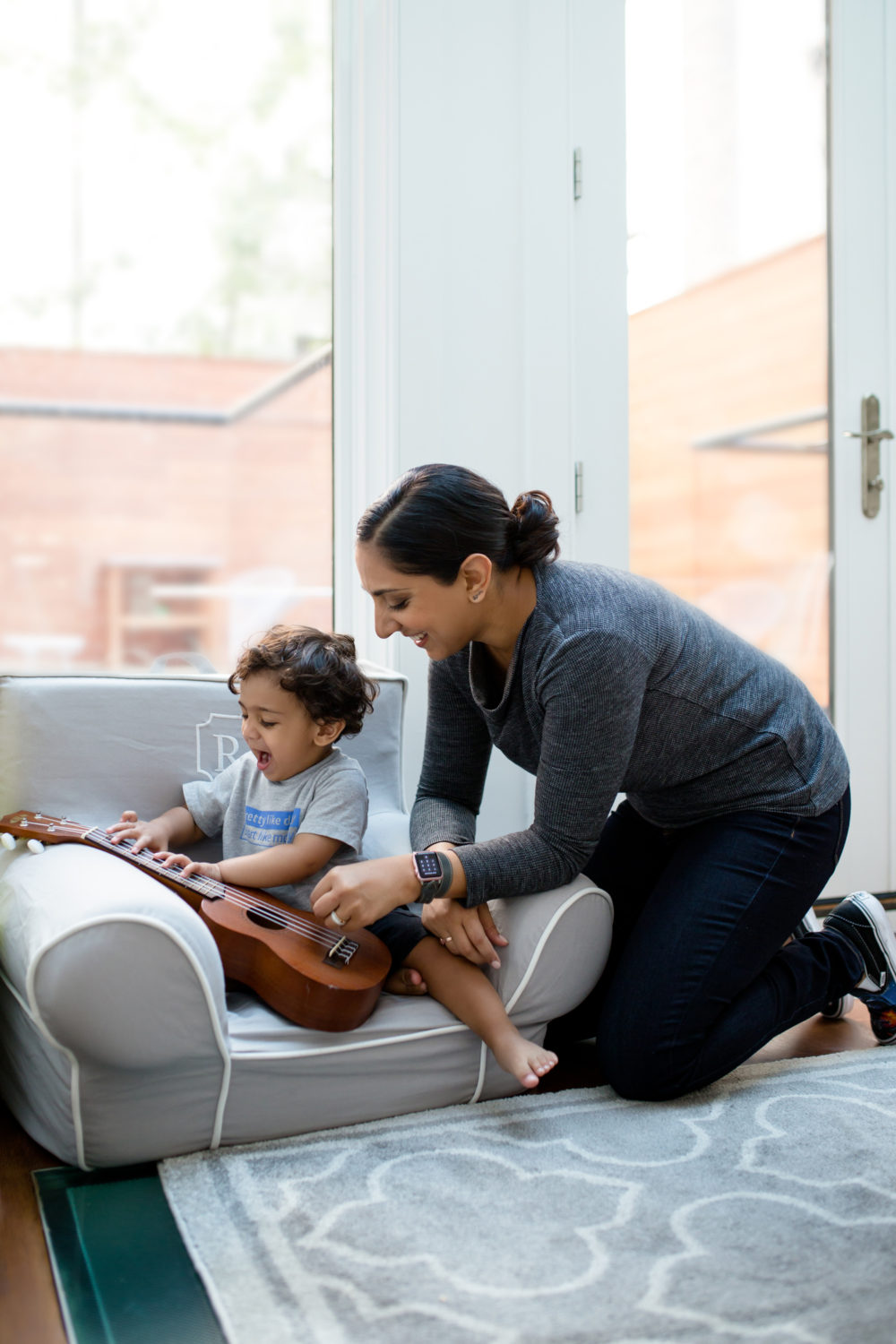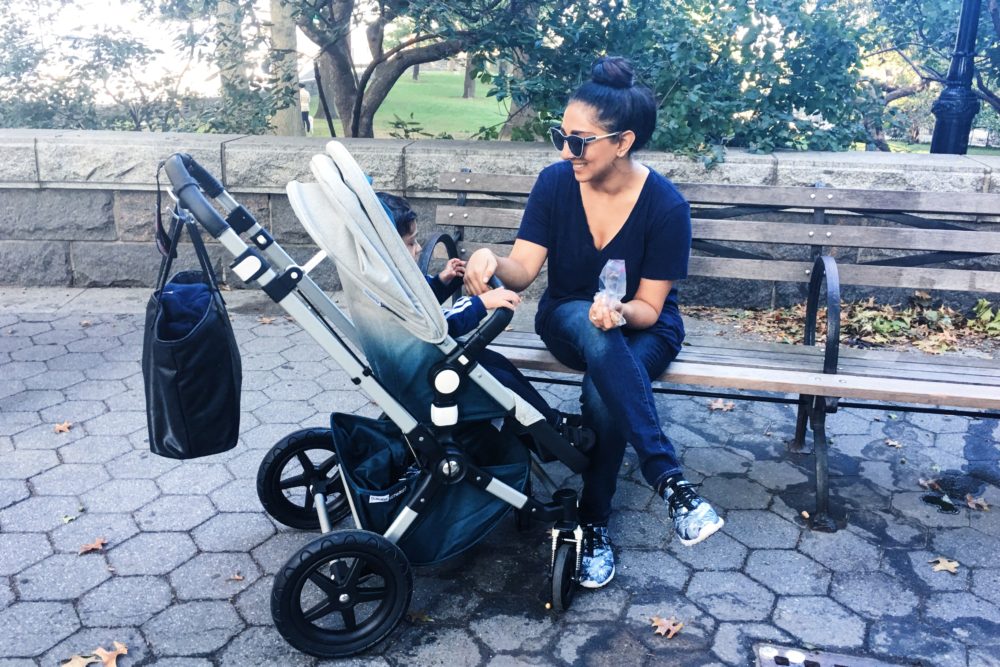
I published this piece last week in honor of Mother’s Day. And it’s stuck with me.
I’ve re-published the article below, italicized, and some new observations in regular text below. Whether you suffer from it, know a woman who suffers from it, or fear it, this essay is for you.
I didn’t know what was wrong with me.
I had a beautiful, happy baby boy. I had a husband who doted on us (and did the dishes diligently). My parents had rented an apartment across the street to help take care of Rho and me.
I had just inked a book deal and was working with my best friend on a startup. And I had just fit back in my pre-baby jeans.
My life looked perfect. And I couldn’t stop crying.
I cried in the grocery store when I couldn’t find mustard. I cried watching my son roll over on the playmat. I cried while making a grilled cheese sandwich.
And I definitely cried after spilling pumped milk. But I’m certain every mother has cried in that moment.
It didn’t even occur to me that I was experiencing postpartum depression. I didn’t have any desire to harm myself or my son. I had no suicidal thoughts. I was generally upbeat and happy.
But at the most random moments, several times a day, I would burst into tears. I’d quickly dash to the nearest empty restroom or bench, hunch over, and hide my face as the water fell from my eyes.
Admitting that I needed help felt like admitting defeat – that I couldn’t be a good mother, or wife, or entrepreneur. I hid my bloodshot eyes behind sunglasses and quickly disposed of wet tissues when no one was looking. I’d curtly answer “fine” when anyone asked how I was doing.
Ha. Fine. Not by a long shot.
The first time I brought up postpartum depression was to my mother. She was sympathetic, but wary of my self-diagnosis. “It’s the baby blues,” she responded, rubbing my back. “We all have them.”
Why does any woman go through this twice, if every mother has this?
I continued to persevere silently. And for every moment of utter despair, there was one of pure joy. Watching my husband and son bond made my heart explode with love. My son’s smile when I started singing never failed to bring a grin to my face.
In those happy moments, postpartum depression was the furthest thing from my mind. But the crying always had a way of weaving back into my life.
I continued to suffer silently (and sometimes not-so-silently) for the first four months of Rho’s life – the most critical for a newborn. During this period, babies mirror their mother’s every move and emotion.
Thankfully, Rho spent quite a lot of time with my parents and our nanny during this time, as I eased back into work. He was a happy cherub of a baby – but in my dark moments, even his smiling face couldn’t stop my tears from falling.
I began to hit my breaking point that July. Thankfully, my father and father-in-law – a scientist and psychiatrist, respectively – sat me down after one particularly blistering verbal explosion.
“We think you’re suffering postpartum depression. The neurotransmitters in your body are off-balance, which happens so often but is never talked about. We love you. Can we schedule you an appointment with your doctor?”
Once the words escaped their mouths, a weight lifted from my shoulder. It was exactly what I thought it was. And it was okay.
I was going to be okay.
I promptly visited my OBGYN a few days later, and left with a prescription and a mandate to exercise and meditate more. My body took a while to adjust to the medicine – it left me sluggish and as if someone threw an emotional wet blanket on me.
I wasn’t crying hysterically anymore. But the happy moments weren’t as happy as they once were.
But I was stable. I was centered. And I started the long journey back to the woman I always have been, and the mother I wanted to be.

It sounds so simple. Visit a therapist, take some medication, and everything is okay. That wasn’t the case with me.
It took months before I began to recognize myself. It also took medication and therapy, which were new additions to my life. After a few months, I began to return to my old self. It felt good. It felt normal.
And then, Neela was killed.
My silence since announcing her passing has nothing to do with ambivalence. Instead, there aren’t hours that go by without my wanting to call her. There isn’t a day where I forget that she’s no longer with us. Mother’s Day was especially bittersweet, as it hit me that she would never be a mother.
I’m hurting. I’m suffering. Don’t let the blog or social fool you – I’m mourning.
For every good day I have, there’s a bad one. For every
As critical as I have been towards Lean In, I’ve found that much comfort in Option B. I credit Sandberg in recognizing the shortcomings of her first book, and writing something that helps anyone who’s suffered a loss. It doesn’t matter if it’s a parent, a child, a friend, or a partner – loss is loss.
Aside from therapy, being asked “how are you doing today?” has been the best question I’ve been asked.
I have my good days. I have my bad days. But I’m still here, and it’s up to me to live every day to the fullest – for my son and husband, for Neela and for myself.

